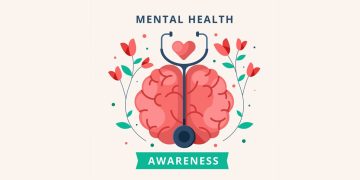Unlocking Optimal Health: A Comprehensive Guide to Enhancing Well-being
Optimal health is not just the absence of disease, but a state of complete physical, mental, and social well-being. It is about feeling your best, performing at your peak, and living life to the fullest.
The Importance of Prioritizing Health
In today’s fast-paced world, it can be easy to neglect our health in favor of other priorities. However, your health is your most valuable asset, and investing in it can have far-reaching benefits in all aspects of your life. By prioritizing your health, you can improve your energy levels, boost your mood, enhance your productivity, and reduce your risk of chronic diseases.
Key Components of Optimal Health
Optimal health is a holistic concept that encompasses various aspects of well-being. Here are some key components to focus on:
Nutrition
A balanced diet is essential for maintaining optimal health. Focus on consuming a variety of nutrient-dense foods, including fruits, vegetables, whole grains, lean proteins, and healthy fats. Limit your intake of processed foods, sugary drinks, and unhealthy fats.
Physical Activity
Regular exercise is crucial for improving your overall health. Aim for at least 150 minutes of moderate-intensity exercise per week, such as brisk walking, cycling, or swimming. Strength training exercises are also important for building muscle mass and maintaining bone density.
Sleep
Quality sleep is essential for optimal health. Aim for 7-9 hours of sleep per night and create a relaxing bedtime routine to ensure a restful night’s sleep. Poor sleep can have negative effects on your mood, energy levels, and cognitive function.
Stress Management
Chronic stress can have a detrimental impact on your health. Find healthy ways to manage stress, such as meditation, deep breathing exercises, yoga, or spending time in nature. Prioritize self-care activities that help you relax and unwind.
Hydration
Proper hydration is essential for optimal health. Aim to drink at least 8-10 glasses of water per day, more if you are physically active or live in a hot climate. Dehydration can lead to fatigue, headaches, and poor concentration.
Common Questions About Optimal Health
How can I improve my diet for optimal health?
To improve your diet for optimal health, focus on consuming a variety of nutrient-dense foods, including fruits, vegetables, whole grains, lean proteins, and healthy fats. Limit your intake of processed foods, sugary drinks, and unhealthy fats. Consider working with a registered dietitian to create a personalized nutrition plan that meets your specific needs and goals.
What are some effective stress management techniques?
Effective stress management techniques include meditation, deep breathing exercises, yoga, mindfulness practices, spending time in nature, engaging in hobbies, and seeking support from loved ones or a therapist. Experiment with different techniques to find what works best for you and make them a regular part of your routine.
How can I improve my sleep quality?
To improve your sleep quality, create a relaxing bedtime routine that includes activities such as reading, taking a warm bath, listening to calming music, or practicing gentle stretching exercises. Avoid screens and stimulating activities before bed, and create a dark, quiet, and comfortable sleep environment. If you continue to have trouble sleeping, consider speaking with a healthcare provider for additional support.
Conclusion
Optimal health is a journey that requires commitment, effort, and dedication. By prioritizing key components such as nutrition, physical activity, sleep, stress management, and hydration, you can unlock your full potential and enhance your overall well-being. Remember that small, consistent changes can lead to significant improvements in your health over time. Invest in yourself and your health, and reap the benefits of a vibrant and fulfilling life.
Remember, your health is your most valuable asset. Invest in it wisely, and you will reap the rewards for years to come.












































